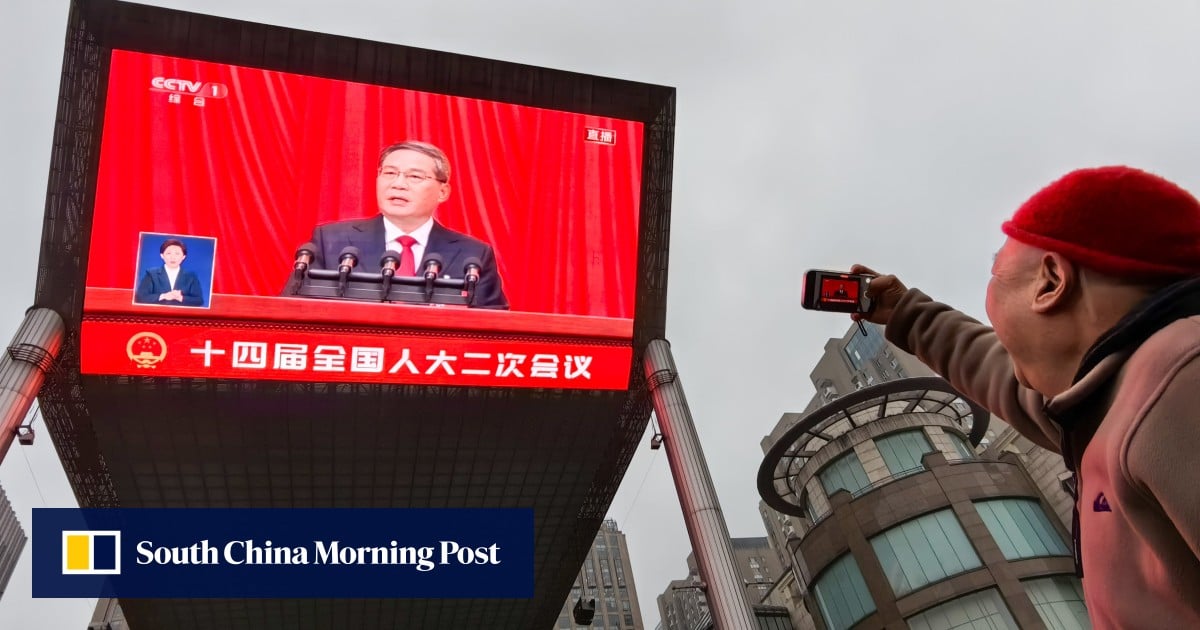Beijing is angling to revive confidence in private entrepreneurs and foreign investors via a renewed campaign for a unified national market and better business environment – an essential task to fulfil its ambitious expansion target of around 5 per cent and ensure economic stability in 2024.
“State-owned enterprises, private businesses and foreign-funded companies all play an important role in China’s modernisation drive,” said Li during the opening of the National People’s Congress, the country’s highest legislature.
Chinese authorities will remove existing restrictions on foreign investment in manufacturing and allow a wider footprint in China’s telecommunications and medical sectors, as well as government procurement, he said.
“We will strengthen services for foreign investors and make China a favoured destination for foreign investment,” the premier said. “We will make it easier for foreign nationals to work, study and travel in China.”
What overseas investors and the private sector want is not just words, but big, deafening initiatives
Foreign businesses are an important source of China’s technological expertise and a secondary line of communication for the country’s external relations, and the domestic private sector employs a vast majority of the workforce and contributes more than 60 per cent to national gross domestic product.
Analysts have cautioned that concrete steps must be taken to salvage hope, and that mere lip service will not be enough to regain trust.
“What overseas investors and the private sector want is not just words, but big, deafening initiatives from Beijing,” said Ding Shuang, chief Greater China economist at Standard Chartered Bank.
“Their confidence can’t simply be mended by documents,” he added. “They want to see Beijing’s determination in policy implementation, and recovery will be a slow process.”
The country’s receipt of foreign direct investment (FDI) declined 13.7 per cent in 2023 from the year before, reaching US$163.3 billion.
Despite a 74 per cent rise in the number of newly established foreign-invested enterprises in January, FDI in China dropped 11.7 per cent on a year-on-year basis to 112.7 billion yuan (US$15.7 billion), according to figures from the country’s Ministry of Commerce.
During his address to the top legislature on Tuesday, Li acknowledged the operational difficulties of small and medium-sized enterprises over the past year.
Li listed two specific targets in the private sector for government support, including those firms’ share of loans and their proportion of bond issuances.
Commitment needs to be matched by action
The premier named the need for market access, access to factors of production, impartial law enforcement and the protection of rights as other prominent areas which would receive close attention.
But such avowals might only leave stakeholders wanting more. “Commitment needs to be matched by action,” said Xu Tianchen, a senior China-based economist with the Economist Intelligence Unit.
“The most pressing concern is whether China can address the payment arrears owed to private businesses,” Xu said.
“Some action has been done, but not enough,” he added. “So it would be interesting to see whether further funding and legislation can be provided in that regard.”
Additional reporting by Mia Nulimaimaiti







